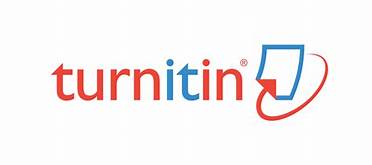Manajemen Pembelajaran E-Learning Berbasis Web di SMP Negeri 2 Sidikalang
Abstract
Full Text:
PDFReferences
Abidin, Said Zainal. 2006. Kebijakan Publik (Edisi Revisi, Cetakan Ketiga).Jakarta: Suara Bebas.
Agustiono, Leo. 2006. Politik dan Kebijakan Publik. Bandung: Puslit KP2W Lemlit Unpad dan Bandung AIPI.
Alvin Toffler. 1992. Gelombang Ketiga. Jakarta: PT Pantja Simpati.
Alwasilah, A. Chaedar. 2003. Pokoknya Kualitatif, DasardasarMerancang dan Melakukan Penelitian Kualitatif. Bandung:Pustaka Jaya.
Anderson, James E. 1969. Public Policy Making. New York: Holt, Rinchenand Winston. Ardi Sutedja. http://www.kompas.com. Babak Baru Teknologi Komunikasi Informasi. 23-Agustus-2004.
Aydm, Cengiz Hakan. 2005. Measuring Readinesss for eLearning: Reflection from Emerging Country. Educational Technology and Society Journal, 8(4), pp. 244-257.
Begicevic, Nina and Blazenka Divjak. 2006. Validation of Theoretical Model For Decision Making About Elearning Implementation. Journal of information and organizational sciences, Volume 30, Number 2. Retrieved 14Februari 2008
Bloomsburg. 2006. E-Learning Concepts and Techniques. New York:McGraw- Hill Companies, Inc.
Bogdan, Robert C. dan Sari Knop Biklen 1982. Qualitative Research for Education: an Introduction to the Theory and Methods. Boston: Allyn and Bacon, Inc.
Charles O. Jones.1996. Pengantar Kebijakan Publik. Terjemahan dari buku: An Introduction to The Study of Public Policy. Jakarta: Ikrar Mandiri Abadi Offset.
Convey, Stephen R. 1989. The Seven Habit of Higly Effective People.New York: A Pireside Book
Davidson-Shivers, et.al. 2006. Web-Bassed Learning: Design, Implementation, and Evaluation. New Jersey: Pearson Prentice Hall.
Denzin, Norman K dan Yvonna S. Lincoln. 1994. Handbook of Qualitative Research. California: SAGE Publications Inc
Hartley, Darin E. 2001. Selling e-Learning. American Society for Trainingand Development
McLeod, Raymond Jr dan George P. Schell. 2007. Sistem InformasiManajemen. Edisi Kesembilan. Jakarta: PT. Indeks.
McMillan, James H. dan Sally Schumacher. 2001. Research in Education A Conceptual Introduction, Fifth Edition. New York: AddisonWesley Longman, Inc
Schermerhorn, John R., Jr. 2001. Management. Terjemahan M. Purnama Putranto. Yogyakarta: Andi.
Siagian, Sondang P. 2005. Sistem Informasi Manajemen. Jakarta: BumiAksara
Yani, Ahmad. 2007. VoIP Nelpon Murah Pake Internet. Jakarta: KawanPustaka.
Yin, Robert K. 2008. Studi Kasus: Desain dan Metode. Jakarta: Rajawali Press.
Yuliar, Sonny dkk. 2001. Memotret Telematika Indonesia.
DOI: https://doi.org/10.30596/jmp-dmt.v4i1.15836
Refbacks
- There are currently no refbacks.







